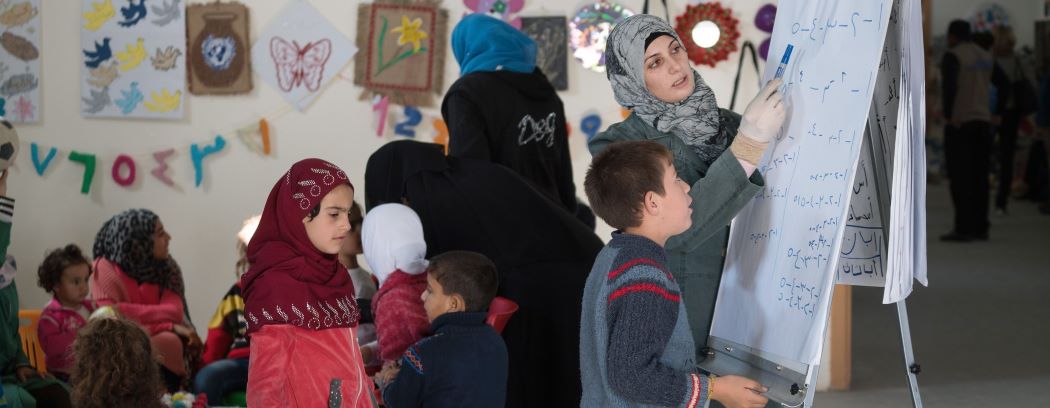Washington, DC., 19 August 2025 ——
Being a humanitarian is more than a label – it is a commitment to uphold the dignity, safety, and well-being of others, especially during times of crisis. Whether through direct action or support from afar, humanitarians dedicate their time, energy, and resources to alleviating human suffering and promoting compassion across borders, cultures, and beliefs. And today, on World Humanitarian Day, we honor and recognize all those who serve humanity.
At the Core
At its heart, humanitarianism is driven by empathy – the belief that every human being deserves respect, support, and the opportunity to live with dignity. Humanitarians respond to suffering not because of politics, religion, or nationality, but because they recognize a shared humanity. They see the pain of others and feel compelled to help.
This commitment is guided by key principles established by international humanitarian law and upheld by organizations like the International Committee of the Red Cross, the United Nations, The Genocide Report (TGR), and many others. These principles include alleviating human suffering wherever it is found and providing aid based on need alone, without discrimination. The principle of neutrality: not taking sides in hostilities or engaging in political controversies, and ensuring humanitarian action is autonomous from political or military agendas.
The Work
Humanitarian efforts can take many forms. On the front lines, this may involve providing food, water, shelter, and medical aid during natural disasters or armed conflicts. In more stable environments, it might mean working to address the root causes of poverty, supporting refugees, or advocating for human rights.
Some people serve as aid workers in conflict zones. Others donate money, organize fundraisers, or volunteer in their communities. Many contribute by raising awareness or pushing for policy changes that protect vulnerable populations.
Humanitarian work is not limited to international efforts; it can be deeply local. Volunteering at a homeless shelter, supporting disaster relief in your hometown, or offering your skills pro bono to marginalized communities are all acts of humanitarianism.
Challenges and Realities
Being a humanitarian can be emotionally and physically demanding. Aid workers often operate in dangerous or unstable environments, facing exhaustion, limited resources, and moral dilemmas. The work requires resilience, cultural sensitivity, and a deep respect for the people being helped.
Moreover, humanitarian efforts are not always perfect. Critics point out issues like inefficiencies in aid distribution, unintended dependency, or the politicization of relief efforts. This has led to ongoing conversations about how to ensure that humanitarianism is both effective and ethical.
Sacrifice in Service
Throughout history, many humanitarians have made the ultimate sacrifice in service to others, risking and even giving their lives to protect human dignity, provide relief, and speak out against injustice.
In 2003, Rachel Corrie, an American activist with the International Solidarity Movement, was killed in Gaza by an Israeli bulldozer while trying to prevent the demolition of Palestinian homes. Her death sparked global debate about civilian protection in conflict zones.
Sérgio Vieira de Mello, a Brazilian UN diplomat and humanitarian, served in some of the most dangerous conflict zones in the world. In 2003, he was killed in the bombing of the UN headquarters in Baghdad, Iraq, along with 21 others.
American freelance journalist and humanitarian James Foley covered conflicts in the Middle East to shed light on the human cost of war. In 2014, he was kidnapped and executed by ISIS in Syria. Humanitarian aid worker Kayla Mueller worked with Syrian refugees. She was kidnapped by ISIS in Syria in 2013 and later killed while in captivity. Kayla is remembered for her bravery and compassion.
Japanese physician and humanitarian, Tetsu Nakamura, dedicated his life to providing medical aid and irrigation development in Afghanistan. In 2019, Dr. Nakamura was assassinated in Jalalabad along with his colleagues.
Marie Colvin was a voice for the voiceless. She was known for her fearless reporting in some of the world’s most dangerous conflict zones, but also for her deep humanitarian commitment to telling the stories of those trapped in war. On February 22, 2012, Marie was killed in Homs, Syria, alongside French photojournalist Rémi Ochlik, while reporting on the constant bombardment by the Assad regime. In 2019, a US court found the Syrian government liable for her death and awarded damages to her family, stating that she was “specifically targeted because of her profession.”
These individuals remind us that humanitarianism is not just about giving, it is about standing with others in their most vulnerable moments, often at great personal risk. Their lives and sacrifices are powerful testaments to what it means to live with courage, empathy, compassion, and purpose.
Everyday Humanitarians
But you don’t have to be on the front lines of a crisis to be a humanitarian. Everyday acts of kindness, advocacy, and support for others – especially those who are suffering – are all part of the humanitarian spirit. It can be as simple as standing up for someone being treated unfairly, donating to a cause, or educating yourself on global issues and acting accordingly.
To be a humanitarian is to be a bridge between suffering and hope. It is choosing compassion over indifference, action over apathy. In a world where crises can feel overwhelming and endless, humanitarianism reminds us that our efforts – however big or small – matter. It challenges us to stay connected, not only to each other, but to our shared responsibility as humans. In the end, being a humanitarian is not about saving the world – it is about refusing to ignore it. Happy World Humanitarian Day!
Photo Credit: UN Women Humanitarian Work – Za’atari Refugee Camp, Jordan by UN Women Gallery. Licensed under CC BY NC ND 2.0

